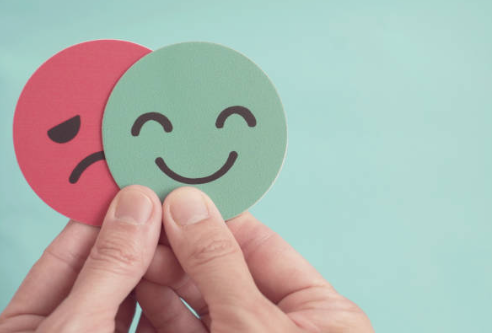Self-Help Strategies
If you suffer from a mental health condition, there are many self-help tools to help you get through your rough patches. These include tools like Action for Happiness, Moodfit, and What’s Up?, which are all written by well-known authors. There are also many other resources to help you improve your mental health, including digital resources.

Selfpause Affirmation App
Download the app to get 1,000’s of affirmation meditations and everything you need to write, record and listen to your own.
Moodfit

Moodfit is an app that tracks your mood and can help you improve your emotional health. It is based on cognitive behavioural therapy and uses a questionnaire to help you evaluate your own mental health. The app also offers tips and exercises to help you deal with negative emotions, such as anger or sadness.
This app is very user-friendly and enables you to track your daily mood changes. Some apps even incorporate journaling features that help you track your mood and identify the factors that trigger it. This allows you to better incorporate treatments and lifestyle changes into your life. Moodfit also features articles and audio files to help you improve your mental health. The app is also protected by a password. If you are concerned about your mental health, Moodfit is the right app for you.
The app offers easy-to-understand charts for analyzing your mood. You can track your mood to the hour with Moodfit, and its analytics allow you to identify patterns. It also offers daily reminders and exercises to help you manage your emotions. You can also communicate with a therapist through the app to get help if you need it.
Another self-help app that focuses on mental health is Sanvello. It offers basic features for free, and for a fee you can enjoy premium features. It offers stress relief and therapy advice and helps you connect with other people who are experiencing the same difficulties. The app also has a community for users to ask questions and share advice anonymously.
Another app for improving mental health is What’s Up. This app offers several self-help tools for depression, anxiety, and gratitude. It also has a habit tracker. It allows you to track good and bad habits, and helps you recognize patterns that may be causing your negative moods.
Another tool is MindDoc, which offers mental health assessment. With the help of this self-help tool, you can create a wellness plan to improve your overall wellness. These tools are intended to supplement professional counseling and therapy, and are not a substitute for professional help.
Action for Happiness

The Action for Happiness app provides daily ideas for actions that can be taken to create a happy life. You can share your daily actions with others on the app, which is available on iOS and Android. It also has a program called Staying Alive, which offers mental health resources, coping strategies, and interactive wellness plans. It can be used by individuals who are depressed, feel suicidal, or are dealing with an ongoing crisis.
While these self-help tools can help you manage many common mental health conditions, they aren’t appropriate for everyone. If you’re looking for more intensive help, consult your GP or check out your local services. NHS One You offers the Every Mind Matters service, which includes audio guides and videos on mental health. You can also visit your local library for Reading Well books and support.
The toolkit also includes a worksheet called the Have-a-Good-Day exercise, which was developed by a well-known Australian clinical psychologist. It contains fifteen prompt-based questions that help you clarify your goals, your way of thinking, and your attitudes. Once you have completed the worksheet, you can decide what areas of your life you want to change to experience more happiness.
Moodfit is an intuitive app that helps you keep track of your moods. It also has CBT-based activities and teaches you how to develop different thinking styles. Although the app is simple and doesn’t offer direct access to a mental health professional, it offers articles and audio files on mental health and ways to deal with stress.
Alicia Marsh
Self-help tools are important to anyone struggling with mental illness. Whether you’re depressed, anxious, or overwhelmed, these resources can help you make changes and overcome challenges. Alicia Marsh’s experience includes working with children in early childhood settings, and she also holds certifications in parenting programs and trauma focused cognitive behavioral therapy. She also offers outdoor counseling in La Crosse, Wisconsin, and believes that people are experts in their own lives and can help themselves.
What’s Up?

The expression “What’s Up?” is a ubiquitous one. We ask each other this question numerous times each day. The meaning of the phrase can vary from person to person. Here’s a look at some examples. The meaning of “What’s Up?” may be different than yours.
The phrase was popularized by Bugs Bunny in the 1940s. It is said that the phrase originated in Bugs’ hometown. The phrase has since gained popularity in the United States and many other countries, such as the UK and Australia. Among other uses, it has become a standard greeting.
The app offers a range of tools that can help you deal with depression. It follows the principles of Cognitive Behavior Therapy and incorporates mindfulness practices. It also includes breathing exercises and a guided grounding exercise. You can also keep a journal and log habits you’re trying to change. You can also access positive quotes in the app. The app can even be password-protected, which is helpful if you’re worried about privacy.
The phrase “What’s Up?” is an informal greeting that is often used to ask how someone is doing. It is a popular way to start conversations and make new connections. In some cultures, it is used as a icebreaker. However, if you’re not sure whether to use the phrase correctly, you should know that it is not the same as “hey.” The phrase “What’s Up?” is also a common greeting in AAVE. It is also used in hip-hop songs.
Our Top FAQ's
Some effective self-help strategies for managing stress and anxiety include:
- Practicing relaxation techniques such as deep breathing, progressive muscle relaxation, or meditation
- Getting regular exercise, which can help reduce stress and improve overall physical and mental health
- Eating a healthy diet, staying hydrated, and getting enough sleep
- Setting boundaries and learning to say no to unreasonable demands
- Seeking support from friends, family, or a mental health professional
- Engaging in activities that bring joy and meaning, such as hobbies or volunteering
- Using positive self-talk and reframing negative thoughts
Here are some ways to develop a growth mindset and increase self-confidence:
- Set specific and challenging goals for yourself and work towards achieving them
- Practice self-compassion and focus on your strengths rather than dwelling on your weaknesses
- Seek out opportunities for learning and personal growth, and embrace challenges as learning opportunities
- Engage in activities that push you out of your comfort zone and help you build confidence in your abilities
- Seek feedback from others and use it to identify areas for improvement, rather than getting defensive or upset
- Cultivate a positive attitude and surround yourself with supportive people who encourage your growth and development
Some techniques for improving time management skills and increasing productivity include:
- Creating a daily or weekly schedule and sticking to it as closely as possible
- Setting clear and achievable goals, and breaking them down into smaller, more manageable tasks
- Prioritizing tasks based on their importance and urgency
- Eliminating distractions and avoiding multitasking, which can reduce focus and efficiency
- Using productivity tools and techniques, such as the Pomodoro Technique or time blocking
- Seeking support and accountability from others, such as a coach or mentor, to help you stay on track
To set and achieve personal goals in a healthy and sustainable way, try the following:
- Identify your values and align your goals with them
- Make sure your goals are specific, measurable, achievable, relevant, and time-bound (SMART goals)
- Break down your goals into smaller, actionable steps and track your progress
- Celebrate small wins and stay motivated by regularly reviewing and adjusting your goals
- Seek support and accountability from others, such as a coach or mentor
- Stay flexible and be willing to adjust your goals as needed based on changing circumstances or priorities
Some self-care practices that can improve physical and mental well-being include:
- Exercise and movement, such as going for a walk or practicing yoga
- Eating a healthy, balanced diet and staying hydrated
- Getting enough sleep and establishing a regular sleep routine
- Engaging in relaxation techniques such as deep breathing, meditation, or mindfulness
- Setting boundaries and taking breaks from work or other responsibilities
- Engaging in activities that bring joy and meaning, such as hobbies or spending time with loved ones
- Seeking support and self-care resources, such as therapy or self-care books or workshops, when needed.
